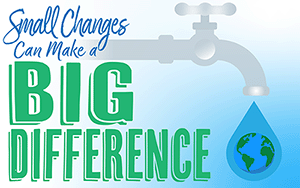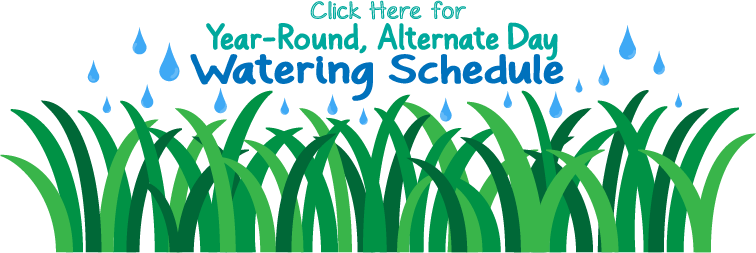Water Conservation Tips

As a resident of our county, we know you value the high quality of life that Johnston County offers. Ensuring we have an adequate water supply for everyone -- today and tomorrow -- is an important part of maintaining our county's vitality. Preserving our water supply is critical.
Johnston County encourages water conservation at all times. The Johnston County Water Conservation policy requires an alternate day schedule for automatic or non-automatic irrigation systems. The year-round policy was adopted by the Johnston County Board of Commissioners on April 5, 2010. Thank you for helping to manage water use.
This page offers water conservation tips. For more information, see also:
Mandatory Water Conservation Policy
Conserving Water: How to and Why
Water Conservation Tips
General
- Check every faucet in the house and repair leaking faucets. A dripping faucet can waste 3,600 gallons a year.
- Monitor your water bill for unusually high use. Your bill and water meter are tools that can help you discover leaks. Estimate your bill with the water bill calculator.
- Know where your master water shut-off is located. This could save water and prevent damage to your home.
- Highest volume water uses inside the home include:
- Toilet: 26.7%
- Clothes Washer: 21.7%
- Shower: 16.8%
- Faucets: 15.7%
- Leaks: 13.7%
Kitchen
- Only use the dishwasher and/or washing machine with full loads, and use the water saving setting if available.
- Don’t leave the water running while rinsing dishes.
- Keep a pitcher of cold water in the fridge, instead of running water until its cold.
- Don’t thaw frozen food under running water.
Bathroom
- Don’t leave water running while shaving or brushing teeth.
- If you hear running water in your toilet tank, adjust the leaky float valve or replace the faulty hardware.
- Keeping showers less than five minutes can save up to 1000 gallons per month.
- Install faucet aerators and/or water saving shower heads.
- Replace pre-1994 toilets with low-flush toilets.
Outdoors
- Winterize outdoor spigots when temperatures dip below freezing to prevent pipes from freezing and/or bursting. See also, Protecting Water Pipes during Freezing Temperatures.
- Water your plants in the morning or evening, not in the heat of the day.
- Water slowly, thoroughly and as infrequently as possible to promote deep roots and healthy plants.
- Adding compost or other organic matter to your soil will improve its water holding capacity.
- Position sprinklers so they do not water pavement.
- Limit car washing. Use a bucket and a hose with spray attachment.
- Adjust your lawn mower to a higher setting. A taller lawn shades roots and holds soil moisture better than if it is closely clipped.
- Capture and recycle rainwater.
Related Links
Page last updated: March 12, 2024

